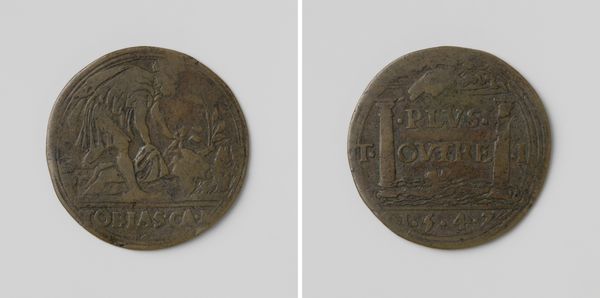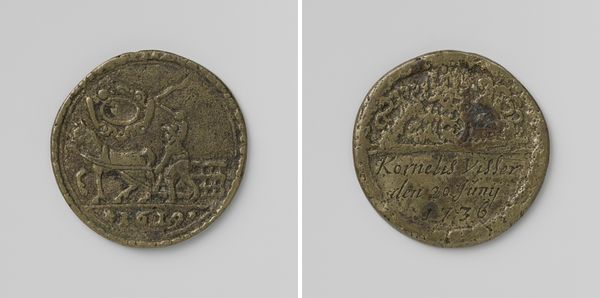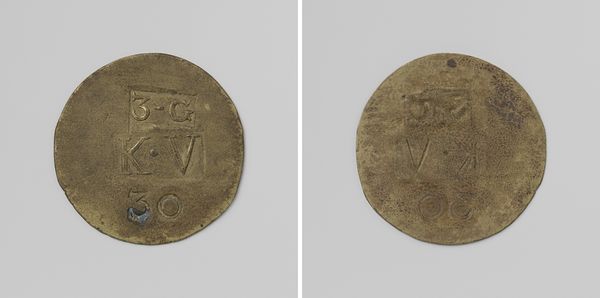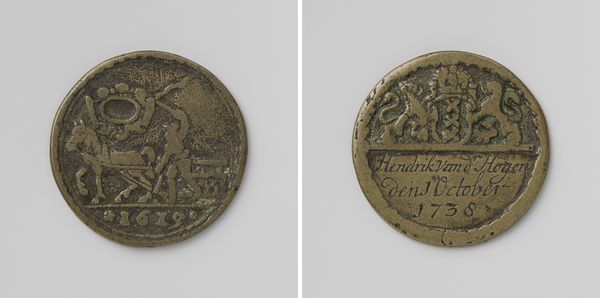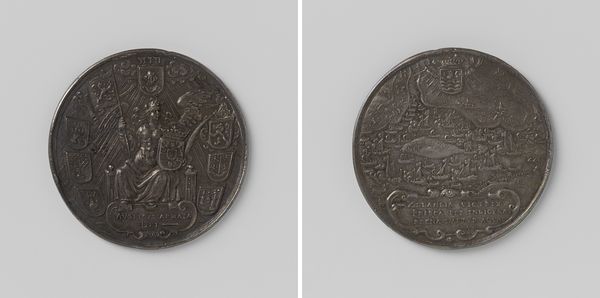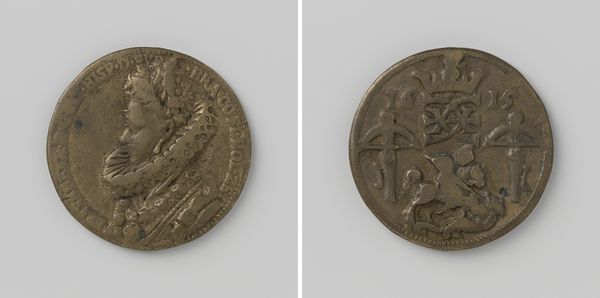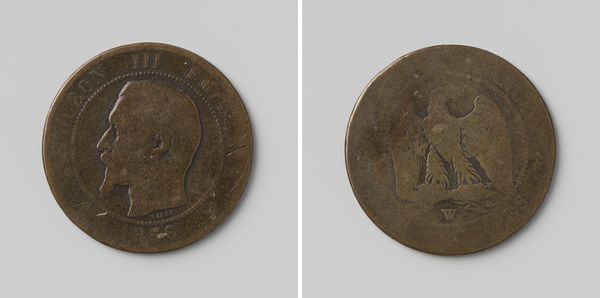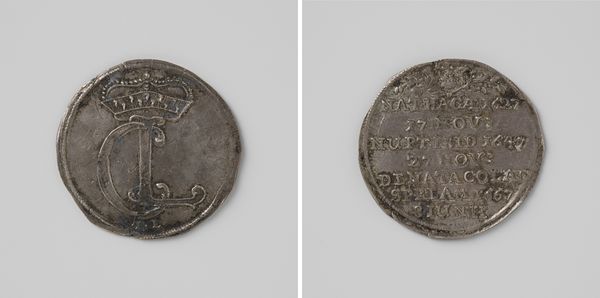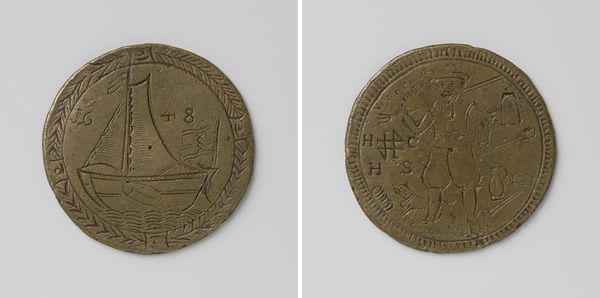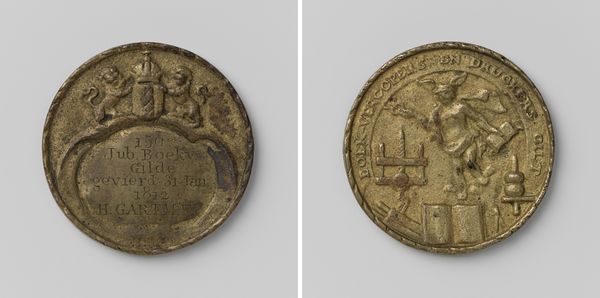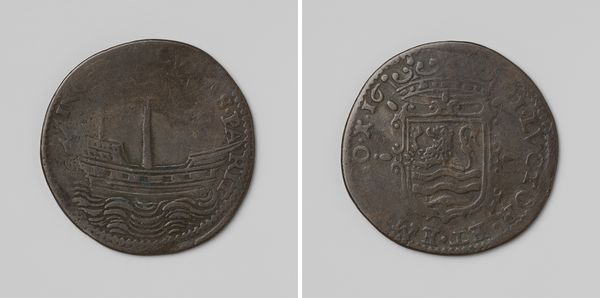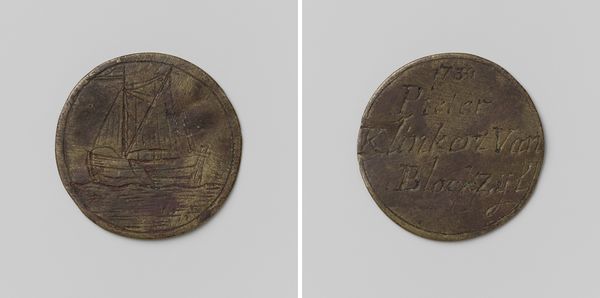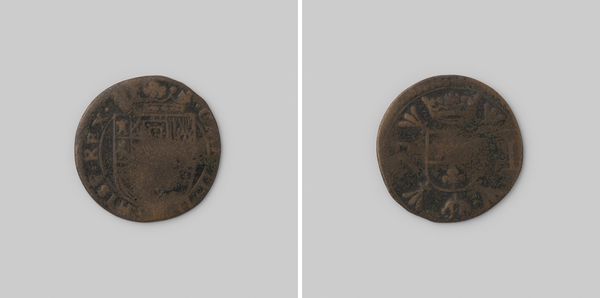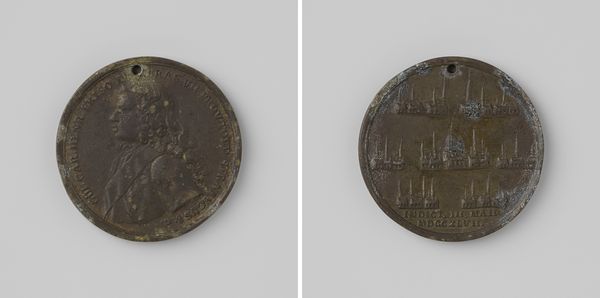
Roei-, steiger- en schuitenvoerdersgilde van Amsterdam, gildepenning van Hendrik van Vught, ligplaats Kalkmarkt 1811
0:00
0:00
print, metal, sculpture, engraving
#
narrative-art
# print
#
metal
#
old engraving style
#
woodcut effect
#
linocut print
#
geometric
#
sculpture
#
embossed
#
history-painting
#
engraving
Dimensions: diameter 3.3 cm, weight 9.28 gr
Copyright: Rijks Museum: Open Domain
This is a bronze guild badge, made in 1811 for the boatmen's guild of Amsterdam. Though the artist is unknown, its purpose is clear: to represent membership in a vital economic network. The badge’s materiality speaks volumes. Bronze, a relatively inexpensive metal, was cast and then engraved to depict a sailing vessel on one side, and lettering on the other. Notice the directness of the imagery, typical of craft traditions: there's no attempt to disguise the badge’s function as a marker of belonging. The choice of bronze also speaks to a wider social context. The Industrial Revolution was well underway, and the availability of metals like bronze facilitated the mass production of objects. The badge is not unique, and it represents the corporatization of labor, tying individual identity to a larger economic structure. It's a humble yet potent reminder of the intimate relationship between craft, labor, and the rise of capitalism.
Comments
No comments
Be the first to comment and join the conversation on the ultimate creative platform.
